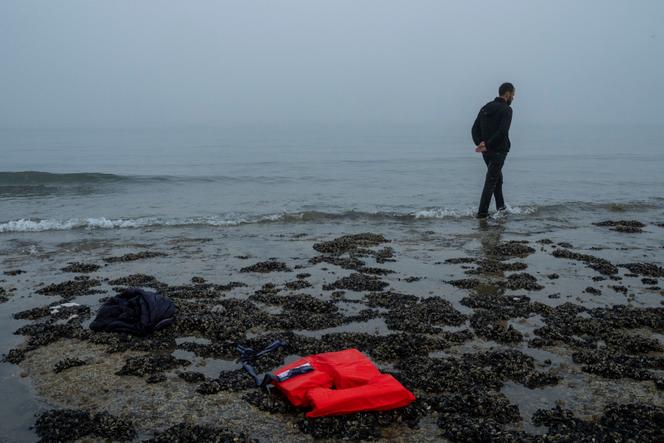


Since 2020, Olivier Majewicz, mayor of Oye-Plage, a small town on France's northern coast, has regularly had to deal with migrants boarding boats and the return of survivors from disasters at sea. In recent months, weather permitting, not a week goes by without traces of attempted crossings (abandoned belongings, etc.) being found in the dunes. "Every time there are victims, we mayors are called by the rescue teams," he said, admitting that he dreads the day when he comes "face to face with a body or body bag. Nobody is prepared for that."
He wasn't prepared for this either, but he had to quickly adapt to welcome survivors in the community hall. "They're soaked, often in shock, devastated to have failed," said Majewicz, who has learned to "handle the situation as best we can": "We have dry clothes, survival blankets, hot drinks and food. We can't just sit back and do nothing."
Like other mayors in the Calais area, Majewicz noted that authorities preventing departures now regularly provokes "angry reactions and sometimes even violence against law enforcement" on the part of migrants. Forty kilometers away, in the small coastal village of Audresselles, Mayor Antoine Benoit made the same observation: "Migrants are angry at law enforcement for preventing the crossings, even though it saves lives."
As long as exile gatherings and attempts to cross to England were confined to the port of Calais and the Channel Tunnel, local officials in small coastal towns were not directly faced with the grim reality. But with small boat crossings on the increase, they find themselves on the front line and at a loss as to what to do. "Just two days ago, police officers were ambushed by migrants in my town," said Guy Allemand, mayor of the town of Sangatte. "Before, they were practically invisible. Now, they're arriving in groups of 70, 80 or even 150, crossing meadows and villages, trampling fields in their attempts to get on board."
On several occasions, he had to open community halls to shelter those who had to turn back: "I even opened my town hall for around 40 people one evening in December. Twelve dazed children were sitting on the stairs. It was terrible."
These three officials, along with a dozen others, responded to a call from Natacha Bouchart, the mayor of Calais, who launched a group to put pressure on the state, highlighting the feeling of abandonment they all share. Their first meeting took place on October 8, with another scheduled for November 8. "How many deaths at sea will it take for the government to act?" asked Bouchart, who claims to have received no response to her letters addressed "to the prime minister, the interior minister, the Elysée Palace. The same goes for the previous government."
You have 49.18% of this article left to read. The rest is for subscribers only.
